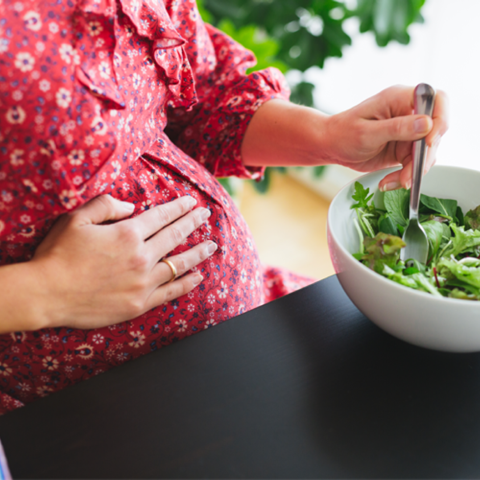Constipation during pregnancy
If you’re a Mom-to-be and you think you might be constipated, you’re not alone. Up to 40% of women can experience symptoms at some point during pregnancy. Constipation can also affect new Moms, with almost 1 in 4 still experiencing constipation three months after their baby has been born.16
Common Causes
- Changes in hormone levels during pregnancy can slow the natural movement of the gut, and reduce the water content of the stools, making them hard to pass15,31
- The presence of the baby in your tummy may also increase the possibility of constipation15
- Reduced exercise or ‘bed rest’ may increase the risk of constipation31
- Not eating enough fiber31
- Not drinking enough fluid31
- Some supplements taken in pregnancy such as iron tablets, can cause constipation16

TREATING CONSTIPATION DURING PREGNANCY
There are many things you can do to help ease constipation when you’re pregnant:
- Start by making sure you’re well hydrated. Try increasing your fluid intake to at least 8 glasses of water per day.31,34
- Eat plenty of fiber-rich foods. Aim for 30 g of fiber a day.31
- Keep active. Light physical activity such as a walk or swim can help to promote normal bowel function. It’s best to avoid strenuous exercise, though.31
If these changes don’t help, talk to your doctor or pharmacist about using a treatment such as Lactulose (Duphalac® Fruit) to soften the stools and help restore normal movement.15
Lactulose (Duphalac® Fruit) works in a gentle and effective way to relieve the symptoms of constipation.35 It’s not absorbed by the body, so it can be taken by pregnant and breastfeeding women, and their babies.4